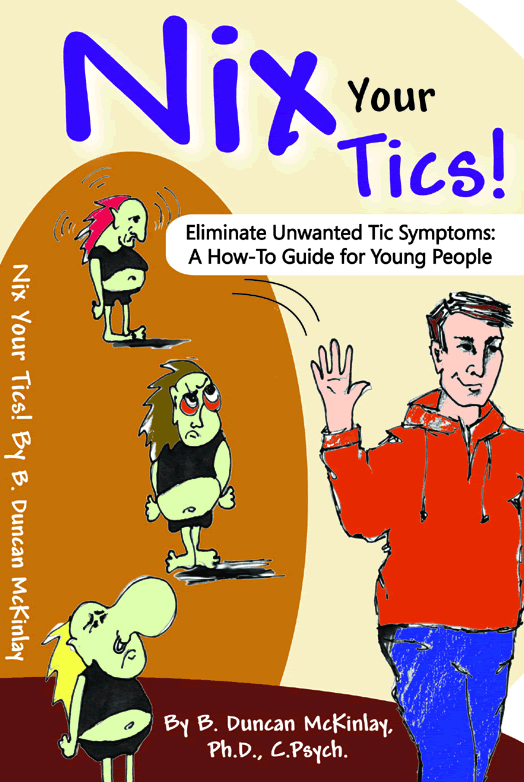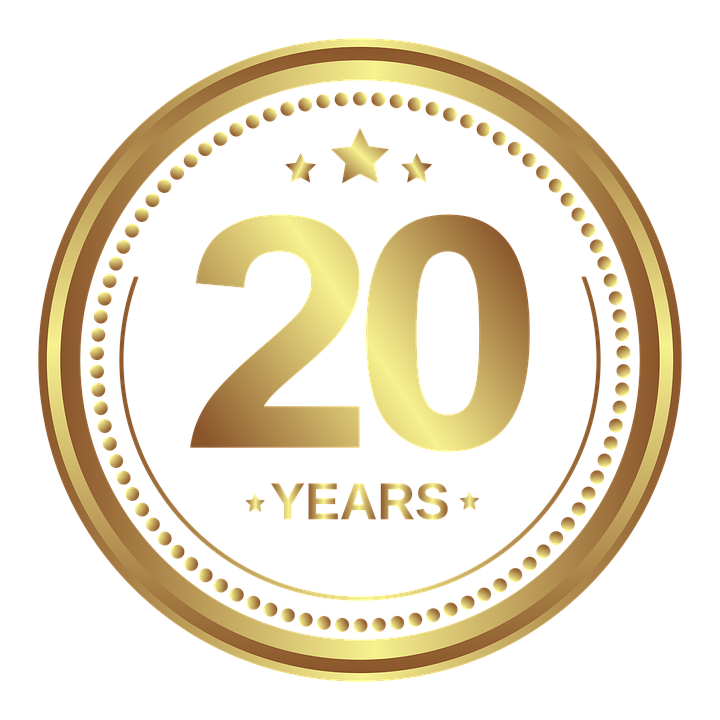Home
Nix Your Tics
Documentary
Writings
Youth Haven
Ask Dr. Dunc
Accolades
Presentations
Resources
Links
Disclaimer
Contact
If
you are a new visitor, diagnosed with a difference, please read this introduction
letter to you.
For
all other new visitors, Dr. McKinlay also has a
special introduction letter to you.

Nix Your Tics!
The Second
(E-)dition from "Life's A Twitch! Publishing". Click here to learn more.
To watch the Life's A Twitch! documentary via streaming video, click
here.
If
you would like to reprint writings from this site, please click
here.
Before
Signing the Guestbook

 
If
you wish to return to the 'Ask Dr. Dunc.' mainpage, please click
here
If
you wish to visit the 'Ask Dr. Dunc.' question archives, please
click here
|
 |
1998 - 2018 |
 |
|
Question 104:
Dear Dr. Duncan, I am a mental health professional. I read
your story in the Reader's Digest of July 2004 and immediately went
to your website. It is a wonderful website and provides extremely
useful information. In am writing from Calcutta, India, and very little
information on TS is available here. The reason for my sending this
mail to you is the following:
About
two months ago, a 29 year old female was referred to me for psychotherapy.
She was reportedly suffering from OCD. The symptom was that she has
an irresistible urge to insert her finger in her right eye. She has
this symptom from age 12 and has been treated by the best psychiatrists
both in America and India. Nothing has helped her beyond temporary
relief. She also is on drugs for epileptic seizures which are controlled
now. The girl has lost sight in her right eye and has also damaged
her left eye. The symptoms decrease or increase in intensity from
time to time. She does this mostly in bathrooms or places where she
cannot be observed. She also has an urge to scream loudly and when
she does that her mouth becomes distorted. Somehow I became a bit
skeptical about the diagnosis of OCD. Her personality does not have
any perfectionist trend, the anxiety-reduction after completion of
the compulsive act is also not present. I am aware that it may not
be present in all cases.
My
questions are:
a. Is it possible that the symptom this girl is suffering from is
TS and not OCD?
b. Could it in any way be related to her epileptic seizures?
Even
before reading your story, in last week's session, I advised her to
be aware of her urge and immediately to do something which will make
her hands inactive, like putting her hands in a pair of gloves etc.
I would like to help. Any suggestion will be hightly appreciated.
With thanks in advance, PM.
Thank
you for emailing, and for your kind words. I don't believe I've ever
had anyone from India contact me before -- you mention that very little
TS information is there, however if you know of any organizations created
to help those with TS in your country I would be pleased to post this
information on my website.
From the symptoms you describe, the amount of time she's had them, and
the way in which they wax and wane (increase and decrease) it is certainly
very possible that this is TS and you are perceptive to consider this.
When you say that engaging in the action doesn't result in a satiation
of the anxiety, is this an absolute absence? Or is it simply a fleeting
or brief relief that is quickly followed up by a subsequent urge? This
may be something you want to ask her.
The distinction between OCD and TS is a tricky one -- because complex
tics can be indistinguishable from compulsive rituals, and because the
two are highly comorbid (around 50% of those with TS also have OCD;
a higher percentage at least evidence O/C behaviours) usually the only
way to determine which it is is to determine what it is creating the
behaviour. If the patient describes a general feeling of somatic unrest
or a bodily pressure, tickle, or "itch" that requires attention
this is more likely TS. If the behaviour is elicited by more of a cognition
-- a thought around symmetry, worry, contamination etc. (something more
coherent that elicits an anxiety) then I think more in terms of OCD.
If you are considering behavioural interventions (what you describe
in your email sounds like one component of Habit Reversal Training),
the distinction is not as important between TS and OCD as the behavioural
treatments for both are rather similar (both Habit Reversal Training
and Exposure and Response Prevention entail exposure to the precipitating
event i.e. either the intrusive cognition in OCD or the rising premonitory
urge in TS) and preventing engaging in the connected behaviour. To purchase a youth-friendly manual on how to use Habit Reversal Training (or what is now known as the Comprehensive Behavioral Intervention for Tics / CBIT), click here.
If you
are considering pharmaceutical intervention, it is MORE important to
distinguish which disorder it is as antidepressants (SSRI's or clomipramine)
are the appropriate medications to first try in OCD, but antipsychotic
medications or antihypertensives are the appropriate medications to
first try in TS.
While epilepsy and TS can certainly co-occur, significant connections
between epilepsy and TS have never been found to the best of my knowledge.
Certainly the neurophysiology of the two conditions is currently believed
to be quite different.
Obviously there is an enormous amount of information regarding the differential
diagnosis of either/both TS and OCD; this forum can only allow for a
cursory response. I would recommend contacting the Tourette Syndrome
Foundation of Canada (1-800-361-3120, or rosie@tourette.ca) to request
one of their "Guide to Diagnosis and Treatment of Tourette Syndrome"
manuals for more information, or go to the Tourette Syndrome Association's
website (www.tsa-usa.org) to purchase some of their videos or literature
as well.
I hope this, although brief, is somewhat helpful. If you need more information
on HRT there is some good research literature describing it -- if you
cannot access it let me know and I can send you something. THANK YOU
for taking the time to learn more about this condition -- I have no
doubt that by doing so you will be a saviour to many, many individuals
in your country.
Dr. Dunc.
Top
of Page |